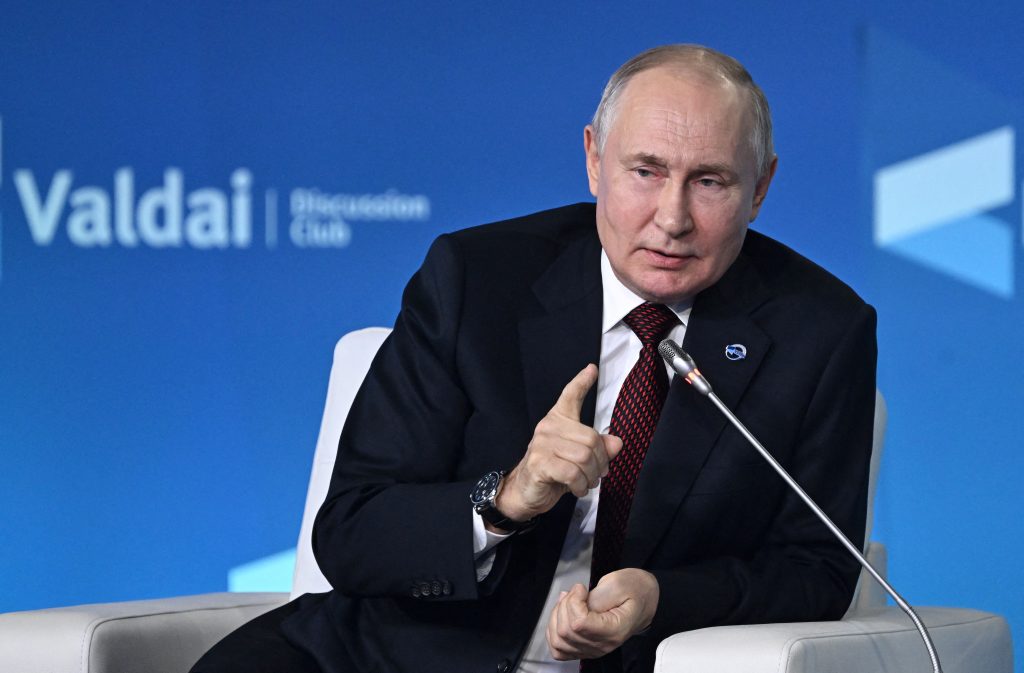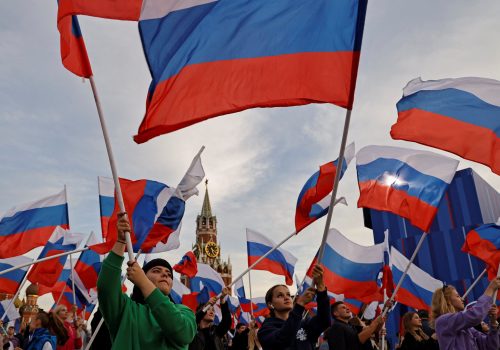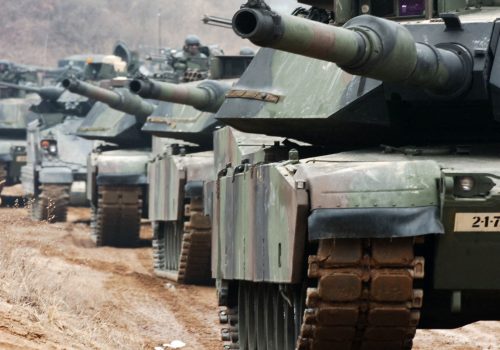Following the end of World War II, the entire international community declared “never again” and began searching for ways to implement this motto in practice. Most people soon agreed that the key to securing a sustainable peace was to make war unprofitable by deepening international cooperation and economic inter-dependency. This led directly to the creation of the European Coal and Steel Community, which would later become the European Union.
The idea that it is more profitable to trade than fight works well in Europe and has helped secure an unprecedented period of peace across much of the continent. Unfortunately, many European political leaders drew the wrong conclusion from this success story and assumed the same principle could be applied to relations with Russia. Germany in particular spent years expanding energy sector ties with Russia in the mistaken belief that this lucrative trade would serve to moderate Russia’s more aggressive instincts.
Nor was Germany alone in such thinking. Many European countries were happy to ignore Russia’s steady turn toward authoritarianism under Vladimir Putin as long as they could secure cheap energy supplies and other financial benefits. Most were primarily concerned with making money, but many also saw deepening economic ties as an insurance policy against any revival of Russian imperialism. It is now clear that this was a disastrous miscalculation.
Stay updated
As the world watches the Russian invasion of Ukraine unfold, UkraineAlert delivers the best Atlantic Council expert insight and analysis on Ukraine twice a week directly to your inbox.
While the Western world was busy repeating the “never again” mantra, Putin’s Russia was increasingly embracing a very different sentiment. From the early years of his reign, Putin actively revived lingering Cold War era antagonism toward the West within Russian society. He also transformed traditional reverence for the Soviet role in the defeat of Nazi Germany into something akin to a state religion, complete with its own dogmas, heretics, rituals, and feast days. People across Russia soon began to repeat the menacing slogan, “we can do it again.” Whereas Soviet troops had once marched to Berlin and occupied half Europe, today’s Russia was now threatening defeat the West through a combination of economic, informational, cyber, and if necessary, military tools.
In this confrontational climate, Europe’s faith in the moderating impact of international trade was perceived by Russia as a fundamental weakness. When viewed from the Kremlin, the profitability of Europe’s growing economic ties with Russia was actually seen as a green light for Moscow to pursue policies of aggression against third parties without fear of consequences.
Members of the Russian establishment remained convinced that while their Western counterparts enjoyed making idealistic speeches, they were ultimately driven by a far baser hunger for money. This Russian contempt for so-called Western values was further strengthened by experience, particularly the indecently rapid clamor for a return to business-as-usual following Moscow’s 2008 invasion of Georgia. The same was true in the wake of Russia’s 2014 annexation of Crimea and invasion of eastern Ukraine.
Russian perceptions of Western weakness and hypocrisy directly paved the way for the full-scale invasion of Ukraine in February 2022. Moscow expected the West to loudly protect the invasion before meekly accepting the new geopolitical realities and resuming economic cooperation with Russia. Based on prior experience, this was an entirely reasonable expectation. It appears to have taken the Kremlin completely by surprise when Western leaders imposed unprecedented sanctions, and when European nations began working to drastically reduce their reliance on Russian energy imports. For Ukraine, however, this show of resolve came too late to avert the devastating consequences of the invasion.
The tragedy of Russia’s criminal invasion could have been avoided if the West had sent an unambiguous message to Moscow indicating that the days of imperial aggression were over. Instead, too much trust was placed in the ability of deepening economic ties to deter international aggression, while modern Russia’s retreat into old-style imperialism was not taken sufficiently seriously.
The failure of trade-based diplomacy is also relevant in relation to China. Economic ties between Beijing and the West are often characterized as being mutually dependent, with some arguing that this makes any serious deterioration in relations unlikely. The same argument is sometimes applied to China and Taiwan, which have a robust economic relationship despite political tensions. However, this flawed logic has already been exposed by the West’s failed Russia policies.
Publicly, at least, China has declared a neutral position toward the Russian invasion of Ukraine. In practice, China is reaping the benefits of closer ties with an isolated Russia, while at the same time avoiding any sanctions pressure from the West. Regardless of the outcome in Ukraine, Beijing stands to benefit; a Russian victory would strengthen China, while a Russian defeat would increase Moscow’s dependency on Beijing.
Eurasia Center events

If Russia is able to achieve even a partial victory in Ukraine, the consequences for global security would be catastrophic. Western leaders must escalate their support for Ukraine to prevent this outcome and make sure Putin’s invasion ends in decisive defeat.
Looking ahead, it is clear that while economic inter-dependency can help maintain peace among like-minded democracies such as EU member states, it is utterly ineffective in terms of authoritarian regimes like Putin’s Russia. Instead, new approaches are needed that prioritize human values over trade balances or financial interests. Above all, the West must rid itself of the naive illusions that set the stage for today’s Russian war in Ukraine.
It is also vital to speak to dictators in the language of strength. After all, this is the only language that leaders like Vladimir Putin truly understand. To Putin and his fellow dictators, any talk of win-win situations and mutually beneficial cooperation is interpreted as a sign of weakness. Instead, today’s world requires institutions capable of imposing powerful sanctions on countries that break international law.
This process should begin with Ukraine. As Western leaders continue to shape their response to Russia’s ongoing invasion of Ukraine, they have an opportunity to build a new system of international relations capable of deterring future dictators from embracing aggressive foreign policies. Immediate priorities should include tougher sanctions against Russia, dramatically increased military aid for Ukraine, and the confiscation of Russian assets to finance the Ukrainian recovery process. Ultimately, Ukrainian victory and Russian defeat will be the greatest deterrent of all for any authoritarian rulers contemplating their own wars of aggression.
Kira Rudik is leader of the Golos party, member of the Ukrainian parliament, and Vice President of the Alliance of Liberals and Democrats for Europe (ALDE).
Further reading
The views expressed in UkraineAlert are solely those of the authors and do not necessarily reflect the views of the Atlantic Council, its staff, or its supporters.

The Eurasia Center’s mission is to enhance transatlantic cooperation in promoting stability, democratic values and prosperity in Eurasia, from Eastern Europe and Turkey in the West to the Caucasus, Russia and Central Asia in the East.
Follow us on social media
and support our work
Image: Russian President Vladimir Putin attends the 20th Annual Meeting of the Valdai Discussion Club in Sochi, Russia, October 5, 2023. (Sputnik/Grigory Sysoyev/Pool via REUTERS)




